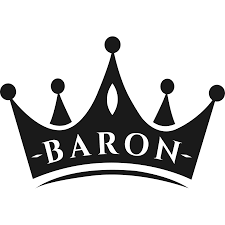
Before podcasting became a trend, blogging was one of the best channels through which one can share his/her ideas, opinions, and “voice” online.
Blogs have been around for over two decades, and there is ten times the number of blogs as there are podcasts.
Interestingly, a blog is still an effective strategy to reach your target audience wherever they may be. Blogging can primarily help you grow your podcast. On the other hand, podcasts can help you grow your blog as well!
Through this post, you’ll know why and how.
Blogging vs. Podcasting
To better understand how a blog can help grow your podcast (and vice versa), let’s talk first about their advantages and disadvantages.
Blogging
Generally speaking, it is much easier to create content because of the available platforms such as WordPress. It is also easy to reach your audience since people online are already in the habit of reading articles. And with SEO, articles can benefit from Google’s search engine, giving you traffic, converting into ad revenue, leads, and sales. One blog post can earn you money for years.
On the other hand, blogging has been around for a while, and the industry is saturated. So the competition is pretty tough. So getting ranked with the relevant keywords take some time. It’s easy to give up or see no return on your blog investment for months on end.
Podcasting
Meanwhile, the podcasting industry is rapidly growing. In fact, a study showed that 70% of the US population is already familiar with the term ‘podcasting,’ and 32% listens to podcasts every month. It has become an alternative medium for people who have screen fatigue and don’t want to read long articles. Podcasts also connect you to people in your niche and allow you to build a deeper connection with them.
Of course, there are also several downsides to podcasting. The first is content creation. It takes more time and effort because you have to invite guests, record your episodes, and then edit before publishing. Podcasts are slowly evolving into shows, which require additional bandwidth and expertise. It’s also quite challenging to grow the audience because your podcast can’t be searched and scanned. So you have to be able to get them hooked in the first few minutes. Engaging your audience is difficult if you rely only on your podcast.
Seeing the pros and cons of each medium, it is safe to say that it is best to have both a blog and a podcast. One medium perfectly compliments the other. Here’s how to use a blog and a podcast so that they would both grow.
Supplement your podcast episodes with blog posts
With podcasts, the topics discussed can be quite limited, especially if you are doing interviews. Listeners want to listen to opinions, stories, unique experiences, and the like.
Topics such as ‘How to Guides’ and ‘List of Best Products’ are not podcast-worthy. If you think that supplemental information on such issues would also help your audience, you can create a blog for them. You can then direct your listeners to the blog posts with Call To Actions on your podcast.
Get engagement and listener feedback through blog comments.
Besides being a supplement to your podcast, you may also use blog articles to communicate with your listeners. Unfortunately, there’s no place for your listeners to talk about the topic, engage with you, or leave their feedback. By creating a blog post about the same topic, you can encourage your listeners/readers to leave feedback, encouragement, and questions in the comment section. This could create a close-knit community that would encourage listeners to tune into future episodes as you talk about the comments in your next episodes.
Blog SEO can help your podcast.
Blogs are easier to discover in search engines, even though Google recently allowed podcasts to be more searchable. Still, your podcast won’t get the organic push you expect.
If your blog has a solid Domain Authority, you can link your podcast content to your blogs to gain organic reach. Then, as you gain more traffic, your podcast will also be discovered.
Outline podcast episodes in blogs
Since the potential audience cannot scan your podcast episodes, you may use your blog to provide a gist of the things you discussed in your podcast episode. A properly worded summary and outline can be a useful tool to invite someone to listen to your podcast.
Transcribe your podcast
If providing a summary and outline after recording a podcast episode seem too tedious already, another option for you is to transcribe your podcast. This way, you don’t have to think anymore. You may also use websites that offer such a service.
With a podcast transcript, your blog and podcast may also appear in search results easier because of the keywords. It also allows you to reach both online readers and listeners.
Ask for suggestions
Are you running out of ideas for podcast content? Connect with your listeners through a blog post and ask them for suggestions. What do they want to hear next? Whose story do they want to know?
This way, your blog will grow because of the interaction, and your podcast will grow in content.
Enrich blog entries with podcast episodes
If an article in your blog is quite long, you may diversify it by adding podcast episodes. You may record some audio summaries for your article so that your reader may have a quick break from the screen without actually leaving your blog.
You may also upload a relevant podcast episode on the article to increase the dwell time on your blog. For example, if you have an article on “How to start your own business”, you may then attach a podcast episode wherein you interviewed an entrepreneur.
Convert blog posts to podcast episodes
If you’re running out of content ideas, turn your blog posts into podcast episodes. You can touch on the main points or invite a subject matter expert. There are even apps like Play for WordPress that can transcribe your content from text to audio for podcasts,
Both will serve you well
Growing your audience, whether for a podcast or a blog, can be a huge challenge. The good thing is, these two are complementary. So, you can use one medium to boost up the other. I’d recommend that for every podcast episode, you’d also create a blog entry to support it. As you effectively do so, not only can your audience grow, but you might even be able to monetize both your blog and podcast.
Let’s connect!
Podcasts, blogs, and other forms of content could be a challenge. After writing hundreds of blog posts and launching a successful podcast, I know how hard it can be. Sign up for my list to share more tips and insight into improving your business and sales with content.





